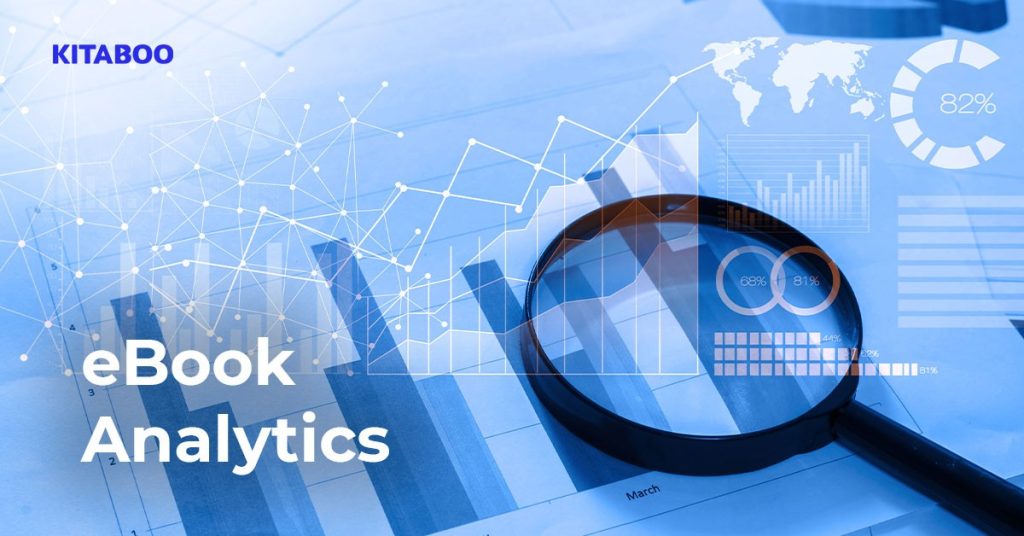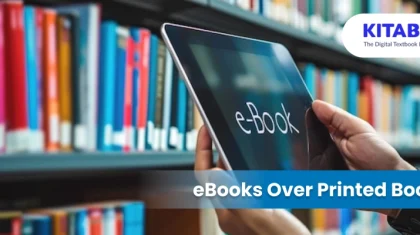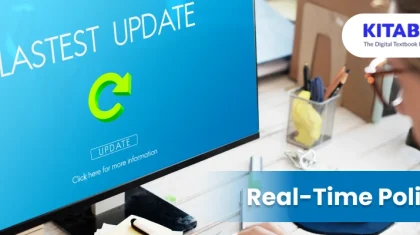
What Is ‘eBook Analytics’ and How Does It Benefit Higher Education Publishers?
Summarize this blog with your favorite AI:
As a higher education publisher, it’s important to keep up with the latest trends and technologies to improve the learning experience for students. One technology that helps with this is eBook analytics. This provides valuable insights into student behavior and engagement.
In this article, we will explore analytics and how they benefit higher education publishers, in-depth.
Table of Contents
What Is eBook Analytics?
eBook analytics is the process of collecting and analyzing data on how learners interact with eBooks. This data can include information on reading habits, engagement levels, and performance metrics.
By analyzing this data, publishers can gain valuable insights into how their eBooks are being used and identify areas for improvement.
These analytics can provide publishers with a range of data, including the following:
- Number of pages read
- Time spent on each page
- Most highlighted passages
- Most searched terms
- Performance on assessments
- User engagement
This data can be used to identify patterns in learner behavior and adapt content to suit their needs better. For example, if many students highlight the same passage, it may indicate a need for further explanation.
How Does eBook Analytics Benefit Higher Education Publishers?
eBook analytics provides higher education publishers with a range of benefits.
Personalized Learning
With the help of eBook analytics, publishers can gain valuable insights into each learner’s individual needs and preferences. This information can be used to tailor content to unique learning styles, creating a more personalized and effective learning experience.
For example, analytics can help publishers identify each learner’s preferred learning modality, such as visual, auditory, or kinesthetic. They can then create content specifically designed to cater to this, leading to better engagement and improved learning outcomes.
Analytics can also help publishers create content tailored to each learner’s proficiency level. By analyzing individual data, publishers can identify areas where they struggle and create additional resources or activities to help them improve.
Alternatively, publishers can create more challenging content to keep learners who excel, engaged and motivated.
Increased Efficiency
Increased efficiency is another significant benefit of eBook analytics for higher education publishers. By leveraging this technology, publishers can streamline their operations and reduce costs while delivering high-quality content to their audience.
For example, analytics can help publishers identify areas where their content is not being used effectively. This helps publishers determine which features are most important to their learners and which are not.
Armed with this information, publishers can focus their resources on the features that are most important to students while eliminating or downplaying features that are not as important. This can lead to significant cost savings without sacrificing quality.
Analytics can also share insights into how students learn best, helping publishers create content more efficiently.
Studying the Short-Term vs. Long-Term Retention of Knowledge
Studying the short-term vs. long-term retention of knowledge can help publishers and content creators design more effective strategies and improve learning outcomes.
By evaluating how well students retain information over different periods of time, educators can
- identify gaps in their teaching methods or the curriculum,
- adjust their approach, and
- ensure that students retain the information they need to succeed.
For example, educators might find that students have a good grasp of a concept in the short term but struggle to retain that information over a longer period. In this case, they might revise their teaching methods to include more repetition or reinforcement or break down the information into smaller pieces that are easier to remember.
By using eBook analytics tools to track short-term and long-term retention of knowledge, educators and content creators can also identify trends and patterns across different cohorts of students. They can then use this information to inform future teaching and publishing strategies.
Ultimately, this can help higher education publishers improve the effectiveness of their materials and ensure that students are able to retain and apply the knowledge they acquire in the classroom.
Using KITABOO for eBook Analytics
Learning analytics is the way forward for higher education publishers. By leveraging technology and data analytics, publishers gain valuable insights into what’s working and what’s not.
This information can be used to create more effective and engaging educational materials that meet the needs of today’s learners.
As technology evolves and more data becomes available, the potential for learning analytics to transform the higher education landscape will only continue to grow.
With the help of eBook analytics, publishers can create materials that are more targeted and personalized, leading to better academic outcomes and increased student satisfaction.
Conclusion
eBook analytics is a powerful tool for higher education publishers looking to improve the learning experience for students. By analyzing data on student behavior and engagement, publishers can identify areas for improvement and create personalized learning experiences for each student.
KITABOO is a digital publishing platform that provides a range of features for publishers, including eBook analytics.
With KITABOO, publishers can collect data on learner behavior and engagement, including information on the pages read, the time spent on each page, the most engaging content piece, the most popular eBook topics and the most active customers amongst other metrics.
KITABOO’s analytics dashboard provides an easy-to-use interface for analyzing data, allowing publishers to identify patterns in student behavior and adapt content accordingly. Publishers can also use it to create personalized learning experiences for students, with features like embedded videos, interactive quizzes, and more.
To know more, write to us at contact@kitaboo.com.
Discover how a mobile-first training platform can help your organization.
KITABOO is a cloud-based platform to create, deliver & track mobile-first interactive training content.


